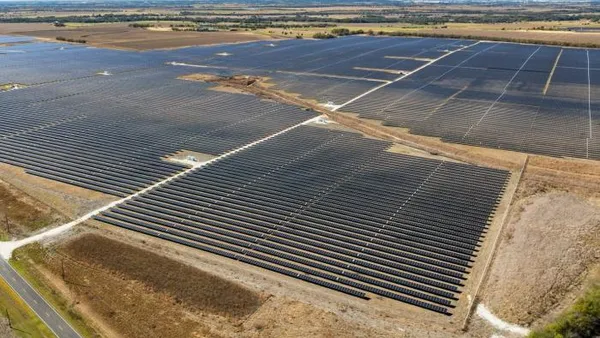Dive Brief:
- Minnesota Gov. Mark Dayton (D) has vetoed a bill aimed at changing how fee disputes with rural electric cooperatives and municipal providers are handled in the state, essentially deciding to maintain strong oversight by the state's Public Utilities Commission.
- Had H.F. 234 become law, the measure would have sent disputes over solar fees to a third-party mediator rather than the PSC. Last year, several rural cooperatives in the state hiked fees on solar owners in order to recover fixed costs, generating concern from renewables advocates.
- In declining to sign the measure, Dayton said the bill would create too much uncertainty among municipal and cooperative electric utility self-generation customers and could also impact the state's economic development.
Dive Insight:
The Public Service Commission will continue to hear disputes over solar fees at small rural utilities, after Dayton said the regulators are uniquely qualified to mediate those cases.
"I believe the PUC uniquely retains the expertise in energy issues needed to fairly resolve these disputes," the governor said in a letter to House Speaker Kurt Daudt (R). Dayton said he had heard from many residents opposed to the bill, including a farmer who used the PUC's Consumer Affairs Office to try to mediate a dispute with his cooperative over a fee charged on a farm wind turbine.
"When that informal process did not resolve the issue, he was able to have an independent review completed by the PUC. That proceeding resulted in the fee being removed from the farmer's bill," Dayton wrote.
But the fees attracting much of the controversy revolve around distributed solar, an argument playing out in many state utility regulatory hearings
In rural areas of Minnesota, cooperatives argue the cost of supporting solar generation is high because of the dispersed nature of their customers To fix that problem, rural co-ops last year added fixed charges—resulting in some customers seeing as much as $50 in fees on top of their monthly bill.
According to the Minnesota Rural Electric Association, fixed charges are necessary because of the significant revenue lost from solar generation, which they claim is as much as 4% of peak load.











